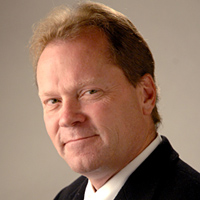The "quality" arguably still remains. However, the "uncompromising" and "unchanging" tenets no longer apply.
SABMiller plc and Molson Coors Brewing Co. today announced that they have signed a letter of intent to combine their U.S. and Puerto Rico operations to create a larger company to compete against the world's largest brewer, Anheuser-Busch Inc.
Although officials from both Miller and Coors shared a stage and spoke of "surprisingly similar" corporate cultures this morning, this marriage has five key variables that will need to be decided in the next few months. The decisions will have a direct impact on Milwaukee.
1. The company's name. They're tentatively calling it MillerCoors. Putting Miller first may have been a bone that was thrown Milwaukee's way. After all, Coors seems to be calling most of the shots, so far. Pete Coors, vice chairman of Molson Coors, will serve as chairman of MillerCoors. Leo Kiely, current CEO of Molson Coors, will be the CEO of the joint venture. Miller's top executives, Graham MacKay and Tom Long, will take supportive roles.
Long-term, the name also could have an impact on the names of the baseball stadiums in Milwaukee (Miller Park) and Denver (Coors Field).
2. The company's headquarters. Golden, Colo., or Milwaukee? Malcolm Wyman, current chief financial officer of SABMiller, said the decision will be based upon the "best strategies and economic interests" of the company. Milwaukee might be in trouble here. Denver's a bigger city with a bigger airport. And as one of my colleagues in the newsroom pointed out, it seems unlikely to think that Pete Coors, the star of all of those commercials filmed in the Rocky Mountains, would agree to move to Milwaukee.
Pat O'Brien, executive director of the Milwaukee 7, says a collaborative effort, including Milwaukee's corporate leaders, Mayor Tom Barrett and Gov. Jim Doyle, will be made to put Milwaukee's best foot forward. "Obviously, it's a big priority. What we have to do now is find out what stage it's in and what criteria they will use," O'Brien said. "Headquarters create jobs in the region. There's a multiplier effect ... It all adds to prestige."
Barrett said today he will make a "full-court press" to convince the merged company that Milwaukee is its best headquarters option. Barrett said he already has discussed the issue with Doyle, Metropolitan Milwaukee Association of Commerce president Tim Sheehy and Greater Milwaukee Committee president Julia Taylor.
"Miller is a Milwaukee institution and has always been a great corporate citizen and employer. I'm going to do every thing I can to make sure that Miller keeps both its corporate headquarters and brewery jobs here ... When people think beer, they think Milwaukee," Barrett said.
Aside from Milwaukee's beer brand, Barrett said the city has many logistical advantages that would make it a preferable option to Denver, but he declined to be specific. "There are many, many advantages, and we'll be laying those out as we move forward." Barrett said.
Make no mistake, when the corporate guys were talking about $500 million in "synergies" with a merged company today, they were mostly referring to eliminating thousands of jobs.
Over the years, Coors has built a notoriously bad labor relations reputation. The company has been accused of union-busting. The firm was the subject of a decade-long boycott by the AFL-CIO after it hired scabs to replace striking workers in 1977 and tried to subject its employees to lie-detector tests. How will Coors executives now interact with Miller's unions?
4. Wholesalers. Will the Miller wholesalers, such as Miller Brands LLC in Wauwatosa, continue to distribute Miller products? Will the wholesalers that distribute Coors products continue to operate? Will they be merged? In other words, will this become an "either/or" proposition, or will both survive?
Steve Johnson, president of Miller Brands, says his troops can only wait and see, at this point.
"I really don't know how this is going to shake out. My guess is you have six to eight months of due diligence. I think we have plenty of time to figure out how this shakes out. For now, from my point of view, it's business as usual. How this will unfold or what the pace will be, I have no idea," Johnson said. "Obviously we would like to see the Miller headquarters remain in Milwaukee."
5. Philanthropic focus. Miller recently was embroiled in a controversy when it supported a festival for gays in Chicago. Let me put it this way. That will never happen again. For generations, the Coors family has staunchly supported conservative causes, including the Heritage Foundation and the John Birch Society.
Back in 1984, former company chairman William Coors told a largely African-American audience that "one of the best things (slave traders) did for you is to drag your ancestors over here in chains."
In preparation for his 2004 bid for the U.S. Senate, Pete Coors tried to appease generations of mistrust among minorities and gays by changing his company's policies and providing domestic partner health care benefits. Ironically, that came back to haunt him in the Republican primary race, when conservative groups lambasted him for doing so, and he was defeated.
So, when Miller and Coors talk about "similar" corporate cultures, one must wonder.
Steve Jagler is executive editor of BizTimes in Milwaukee and is past president of the Milwaukee Press Club. BizTimes provides news and operational insight for the owners and managers of privately held companies throughout southeastern Wisconsin.
Steve has won several journalism awards as a reporter, a columnist and an editor. He is a graduate of the University of Wisconsin-Milwaukee.
When he is not pursuing the news, Steve enjoys spending time with his wife, Kristi, and their two sons, Justin and James. Steve can be reached at steve.jagler@biztimes.com.





